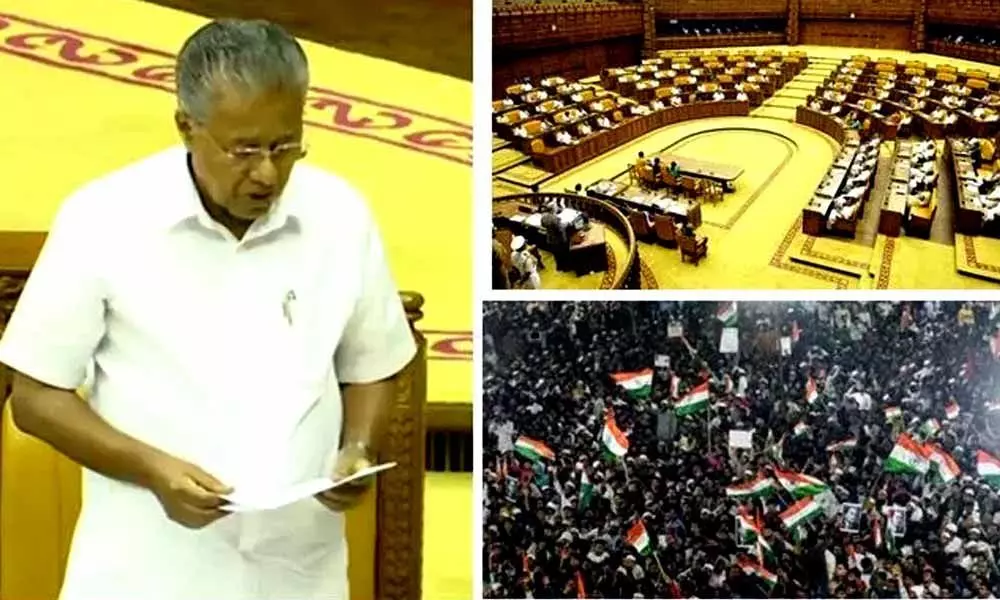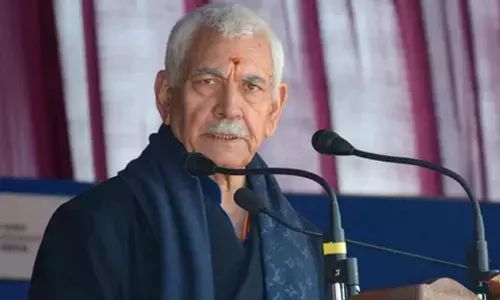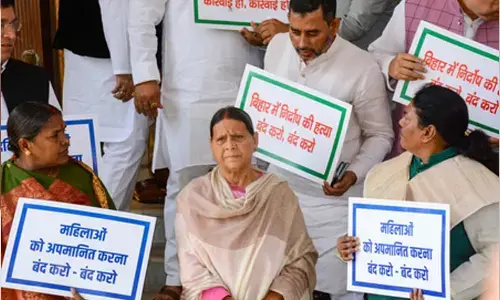The CAA Conundrum: Can States Overrule Centre?

After Kerala assembly passed a resolution against the Citizenship Amendment Act (CAA) on December 31, 2019, the Punjab State Assembly followed suit.
After Kerala assembly passed a resolution against the Citizenship Amendment Act (CAA) on December 31, 2019, the Punjab State Assembly followed suit. It passed a similar resolution against the law on Friday. While the states opposed to CAA perceive the Act as 'unconstitutional', as stated, for instance, in the resolution moved by Kerala Chief Minister Pinarayi Vijayan in the assembly, can they override the Centre?
Legal experts point out that these resolutions passed by state legislatures are expressions of the will of the people. In other words, they have no constitutional validity and will not withstand the scrutiny of law. They cannot be seen as laws enacted by the state since citizenship falls exclusively within the domain of the Centre.
These were precisely the views expressed by the Kerala Governor Arif Mohammad Khan. Both Kerala and Punjab have now decided to take the matter to the Supreme Court where a clutch of petitions have been filed on the contentious CAA.
The question which needs to be asked is, would the resolutions of some states against the Act have a bearing on the Supreme Court's final view on the matter? Legal analysts say that while the Court may take popular unease into account, it would in all likelihood scrutinise the technical and constitutional aspects of CAA.
Meanwhile, former Mizoram Governor K. Rajasekharan sought to be impleaded in the case is being heard by the Supreme Court on the CAA. The BJP leader opposed the Kerala government's move to approach the Supreme Court against the act. His contention is that the governor of the state was not consulted before the Pinarayi Vijayan government took this decision. Rajasekharan's submission also states that the state government is spending public money on needless litigation.
The former Mizoram governor's plea seeks to know the area of dispute between the Centre and the state since the Kerala government filed its petition under article 131 of the Constitution which says that the Supreme Court is the guardian of the fundamental rights guaranteed under Article 14 and which further says that if there is any violation, one can go directly to the Supreme Court under article 32 of the Constitution, which is also a fundamental right.
With other state governments likely to pass similar resolutions in their assemblies and also approach the Supreme Court on the subject, the matter now rests with the apex court on a final interpretation of this contentious act.




